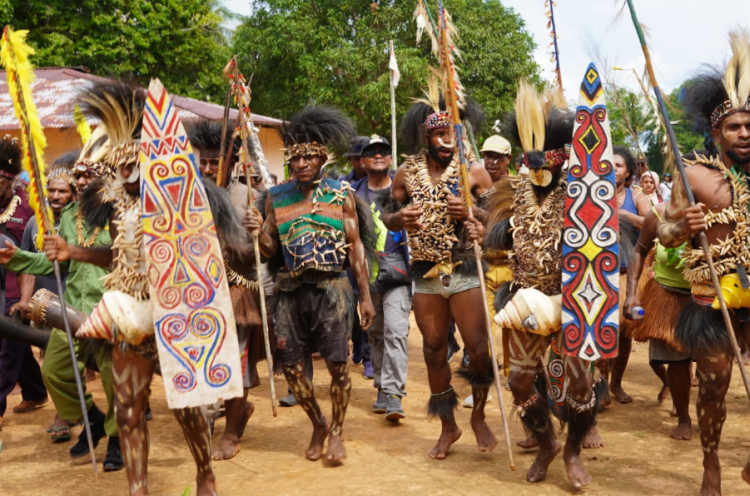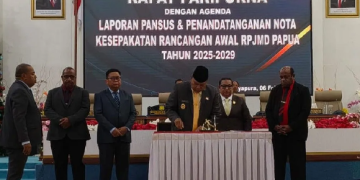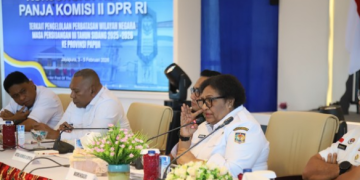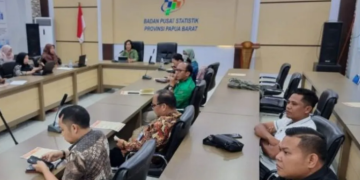PapuaAround.com – The culture of Mappi in Papua is one of the rich and unique heritages of Indonesia. Mappi Regency is renowned for its traditions, which include wood carving, dance, and various rituals that reflect the local wisdom of its people. In this modern era, preserving and promoting Mappi culture is essential to ensure it is not forgotten and can be introduced to future generations.
Wood carving is one of the most prominent characteristics of Mappi’s culture. This craft serves not only as an artistic expression but also as a means of telling stories rooted in the community’s daily lives. Through carving, the people of Mappi can convey values and traditions passed down through generations. These artworks are often used in traditional ceremonies and symbolize cultural identity.
In addition to wood carving, traditional dances are an integral part of Mappi’s culture. These dances are typically performed at various events, including traditional ceremonies, celebrations, and festivals. Every movement in the dances has its own meaning and depicts the interaction between humans and nature. In this context, dance is not merely entertainment but also a means of communicating moral and spiritual messages to the community.
The government and civil society organizations play a crucial role in the efforts to preserve Mappi culture. Various activities are organized to support the development of arts and culture, such as cultural festivals that feature artistic performances, handicraft exhibitions, and workshops for the youth. These activities not only attract the attention of local communities but also tourists from outside the region who wish to learn more about Mappi culture.
Read also: Supreme Command, The Dominant Force of Kostrad’s Senior Generals
Mappi has great potential as a cultural tourism destination. Its natural beauty, which remains pristine, combined with its rich cultural heritage, makes the regency an attractive place to explore. By developing the tourism sector, it is hoped that economic benefits will flow to the local community. Visitors can experience authentic encounters and gain deeper insights into the traditions and daily lives of the Mappi people.
The importance of cultural education for the younger generation cannot be overlooked. The community must strive to instill a sense of love and pride in their own culture. With adequate training and education, it is hoped that future generations can continue and develop the existing traditions. Additionally, active participation from the community in preserving and nurturing cultural heritage is essential.
Through various preservation efforts, Mappi has the potential to serve as a model for other regions in Indonesia. The cultural diversity it possesses can become a strength to attract global attention. With effective collaboration among the government, the community, and various stakeholders, Mappi culture can not only survive but also thrive, adding a distinctive hue to the mosaic of Indonesian culture.
In this context, the sustainability of Mappi culture is a shared responsibility. By supporting one another and working together, the people of Mappi can ensure that the traditions and cultural practices established over centuries will continue to be remembered and appreciated by future generations. Mappi will remain an inseparable part of Papua’s and Indonesia’s identity.











